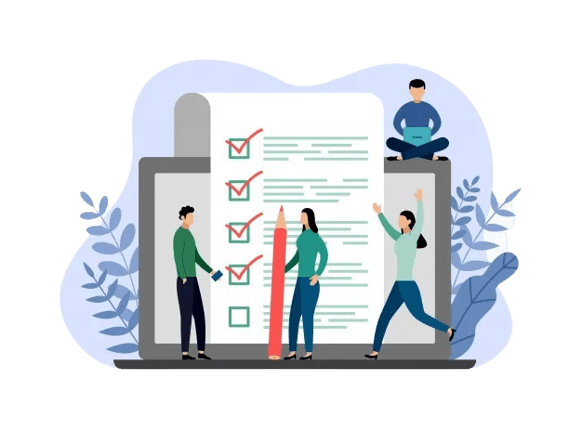rTMS OCD Assessment
3 Min Free rTMS OCD Assessment
Who Can Benefit From This rTMS OCD Assessment?
The rTMS OCD assessment can benefit individuals who are seeking to evaluate the impact of repetitive transcranial magnetic stimulation (rTMS) therapy on their obsessive-compulsive disorder (OCD) symptoms.
It is designed for individuals who have been diagnosed with OCD and have undergone or are considering rTMS treatment.
This assessment helps gauge the frequency and intensity of OCD symptoms and their potential response to rTMS therapy. The assessment aims to provide valuable insights into the effectiveness of rTMS in managing OCD symptoms and optimizing treatment outcomes.

rTMS OCD Assessment Accuracy

The accuracy of the rTMS OCD assessment depends on various factors. While the assessment can provide valuable information about the frequency and intensity of OCD symptoms and their potential response to rTMS therapy, it is important to note that it should not be considered a definitive diagnostic tool.
A comprehensive evaluation by a qualified healthcare professional is essential for an accurate diagnosis and determination of treatment options. The assessment can serve as a useful tool in the overall assessment process, but its accuracy should be interpreted within the context of a comprehensive clinical evaluation.
Types of rTMS OCD Assessment
Compulsion Severity Assessment
Evaluates the intensity and frequency of engaging in repetitive behaviors as a response to OCD-related anxiety.
Functional Impairment Assessment
Evaluates the degree to which OCD symptoms disrupt daily activities and functioning.
Resistance to Rituals Assessment
Assesses the level of difficulty individuals face in resisting performing rituals or compulsions.
Distress from Inability to Perform Rituals Assessment
Measures the extent of distress or anxiety experienced when unable to carry out OCD-related rituals.
Frequency of Intrusive Thoughts Assessment
Measures how often individuals experience intrusive thoughts related to their OCD symptoms.
Duration of Ritualistic Behaviors Assessment
Measures the excessive time spent engaging in OCD-related behaviors.
Handling rTMS OCD
Handling rTMS for OCD involves several key considerations:
- Consultation with a healthcare professional: Seek guidance from a qualified healthcare professional experienced in rTMS treatment for OCD. They can assess your specific situation, discuss potential benefits and risks, and determine if rTMS is an appropriate option for you.
- Treatment planning: Collaborate with your healthcare professional to develop a personalized treatment plan. This includes determining the optimal rTMS parameters, such as frequency, intensity, and treatment duration, tailored to your individual needs.
- Treatment sessions: Attend the scheduled rTMS treatment sessions as recommended by your healthcare professional. These sessions typically involve placing a magnetic coil against your scalp, delivering targeted magnetic pulses to stimulate specific brain regions associated with OCD.
- Monitoring and adjustment: Regularly communicate with your healthcare professional throughout the treatment process. They will monitor your progress, assess the impact of rTMS on your OCD symptoms, and make any necessary adjustments to the treatment plan.
- Adjunctive therapy: In conjunction with rTMS, consider participating in psychotherapy or counseling. Cognitive-behavioral therapy (CBT) or exposure and response prevention (ERP) therapy are commonly used to address OCD symptoms and enhance the effectiveness of rTMS.
- Self-care and support: Engage in self-care practices such as maintaining a healthy lifestyle, managing stress, and seeking support from family, friends, or support groups. It is crucial to prioritize your well-being and establish a strong support system during the rTMS treatment process.
- Follow-up and maintenance: After completing the initial rTMS treatment, your healthcare professional may recommend follow-up sessions or a maintenance schedule to sustain the positive effects. Adhere to the recommended post-treatment plan to optimize long-term outcomes.
Remember, individual experiences may vary, and it is essential to consult with a healthcare professional for personalized guidance on handling rTMS for OCD.

